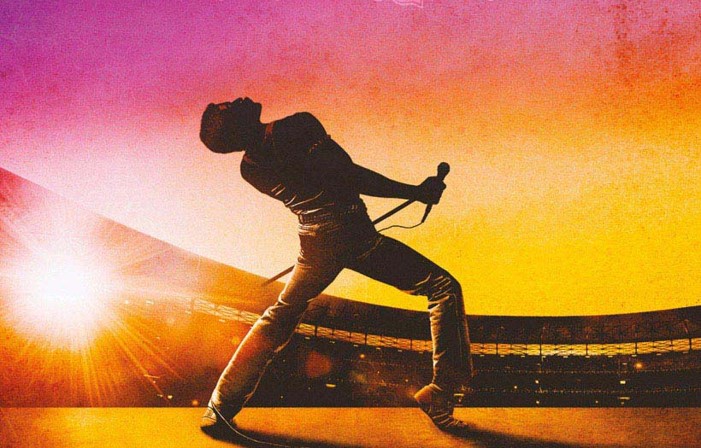On October 24th the highly anticipated Queen biopic, Bohemian Rhapsody hit cinemas across the country, directed by Dexter Fletcher who replaced Bryan Singer towards the end of production.
The film spans over a 15-year period throughout the band’s life. It begins by introducing Freddie Mercury (his less glamorous name before he changed it was Farrokh Bulsara) played by the brilliantly talented Rami Malek. Opening with a club scene Freddie meets Mary, portrayed by Lucy Boynton, who becomes an important part in his life. At the same club, Freddie becomes the lead singer of the band after the bands original lead singer quits. From there the band slowly rises through the music scene across the world. Intertwined with this are Freddie’s complicated relationships with his family, Mary, his manipulative manager and his inner conflict with his sexuality.
As everyone knows Mercury passed away from an AIDs-related illness which the film touches upon both beautifully and respectively without putting the audience through the heartbreak of a death scene. They subtly raise awareness of the struggles that the gay community went through during and around the 1970’s and 1980’s which many young adults will not be aware of. The film ends with a very closes re-enactment of the band’s breath-taking performance at Live Aid. Throughout this, the film is given the closure it needs and ends on a massive high.
Watching I had actual goosebumps and shivered every time they sang and performed. Be warned though it is a real tear-jerker, so bring the tissues and ditch the mascara. For the first half of the film, the band are trying to find the perfect song to really shake things up in the music industry. Now, of course, everyone in the audience knows Bohemian Rhapsody, but the whole time I was just dying to hear it, just waiting for that moment as they tease you with different musical notes and lyrics of the song. The tension is built masterfully and when you finally hear it it’s a magnificent moment. Everyone in the audience was completely enthralled, not a single rustling of sweet packets throughout. Using a mix of Queen master tapes, actor Malek and the voice of Canadian, Christian rock singer, Marc Martel you’re transported back to the 1970’s to one of their legendary gigs.
The downside to the film is that it was very limited in exploring Freddie’s sexuality, mainly focusing on his relationship with Mary, and a brief glimpse of a budding relationship with Jim Hutton at the end. Instead, when exploring Freddie’s relationships with men it is in seedy bars, or drunken, drug-fuelled nights. There was really a missed opportunity to tell Mercury’s true story but instead, throughout the film, he claims that Mary is the true love of his life. Focusing on a hetero relationship rather than diving into his bisexuality with more depth is a slight to both Freddie and the LGBTQ community to which he was an icon for. The biopics main informants where Queen members, drummer, Roger Taylor and lead guitarist Brian May and it shows.
The band members were played in a more favourable light whilst Freddie was seemingly the main cause of conflict amongst the group, greedy for money and shown to need the band more than they need him. Although I am not an expert on Freddie Mercury, I found this representation to be more for dramatic effect than based on his actual character.
However, knowing little about Freddie Mercury, I did fall in love with him from the beginning, with his dramatic flair, confidence and beauty. Malek really captured the spirit and essence of Freddie and whether you’re Queen’s number one fan or could only name one song this film is a must see. If you’re not a Queen fan before, you most certainly will be after.
By Sarah Hannah

